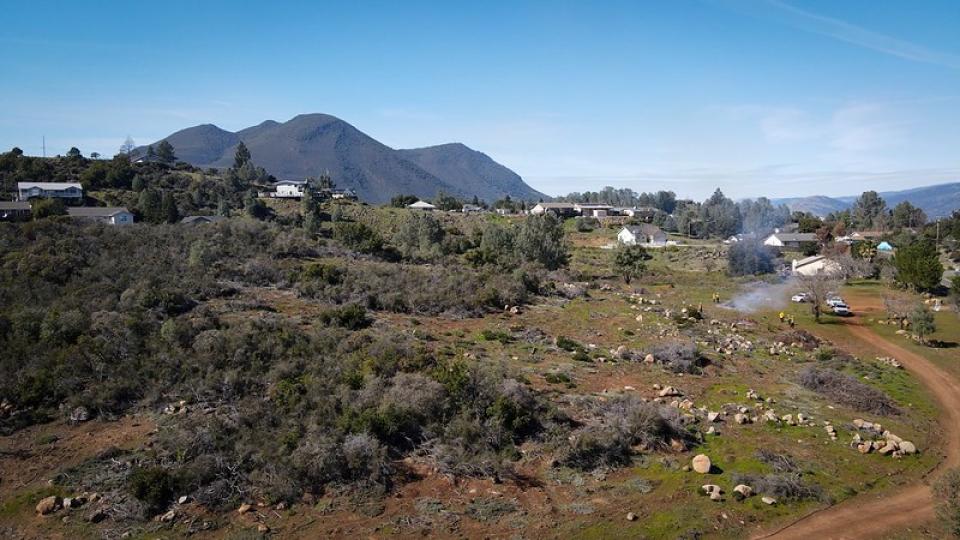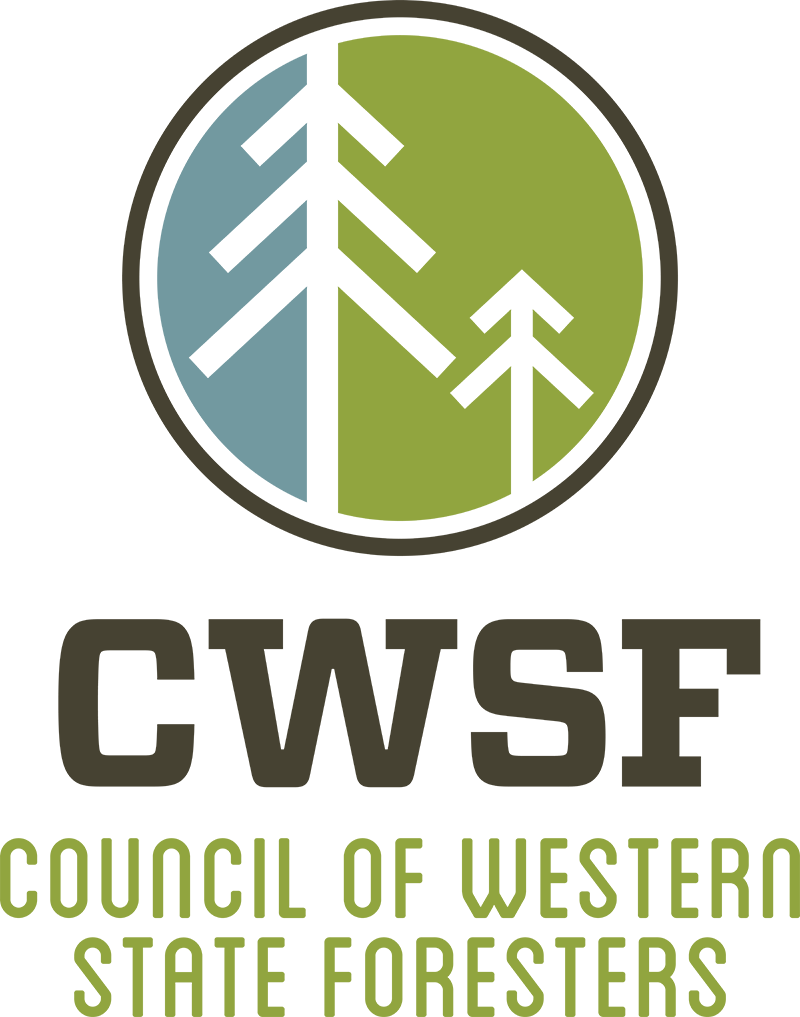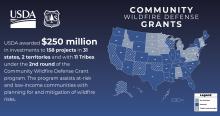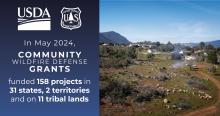On May 14, U.S. Department of Agriculture (USDA) Deputy Secretary, Xochitl Torres Small, announced the awarded list of projects for the fiscal year (FY) 23 CWDG program.
This second year of the grant program funded 158 projects for $250 million in 31 states, 11 tribes, and two territories. View the list of funded projects.

According to the USDA press release, the program is investing $1 billion over five years to assist at-risk communities through grants to local and Tribal communities, non-profit organizations, state forestry agencies, and Alaska Native Corporations, with planning for and mitigating wildfire risks on lands not managed by federal agencies.
The CWDG program is designed to assist “communities in the wildland-urban interface maintain resilient landscapes, create fire-adapted communities, and ensure safe, effective wildfire response -- all goals of the unifying National Cohesive Wildland Fire Management Strategy and aligned with the objectives of the National Climate Resilience Framework” (USDA press release).
This competitive grant program focuses on prioritizing communities that are at-risk in low-income areas, in an area of high or very high wildfire hazard potential, and have been impacted by a severe disaster. The intention is to help communities create or revise Community Wildfire Protection Plans (CWPP) and to implement projects described in a CWPP.
In Round 2, the grant program received 535 applications, with over $965 million requested for funding. Compared to last year, this year, 118 more applications were submitted, and more than $440 million was requested.
It is evident that great work has been done so far, but there is still a strong need to support Cohesive Strategy projects in Wildland Urban Interface (WUI) communities.
More information regarding Round 2 funding can be found on the USDA Forest Service’s CWDG webpage and in the National Association of State Foresters press release.
Applications and comments provided from the review process can be viewed in the forestrygrants.org portal. For additional information, contact Halie Miyazawa.


